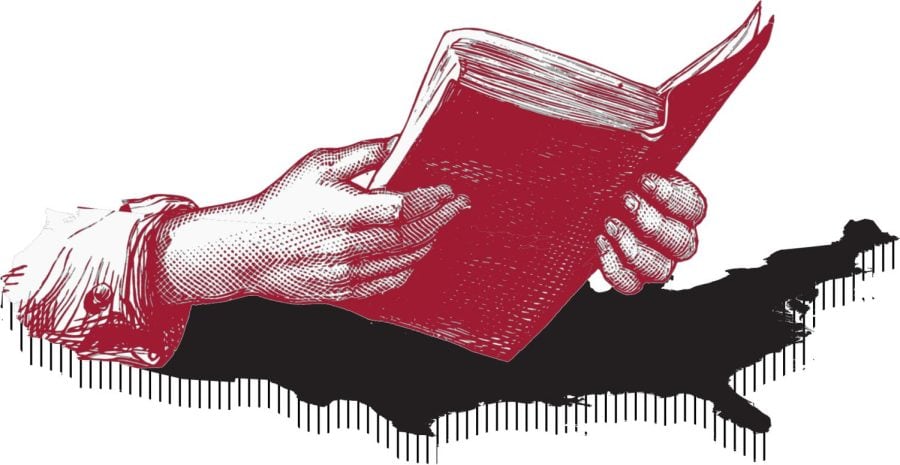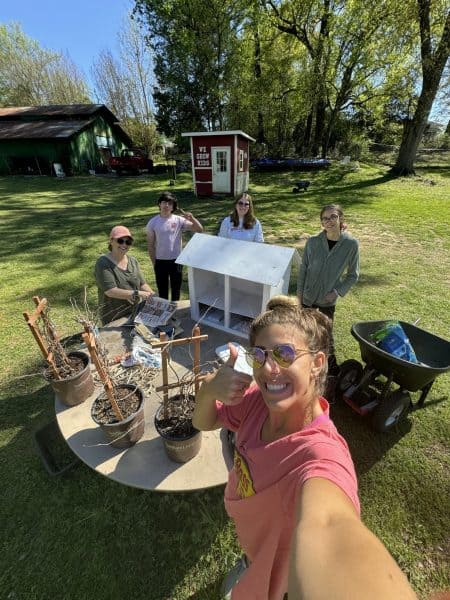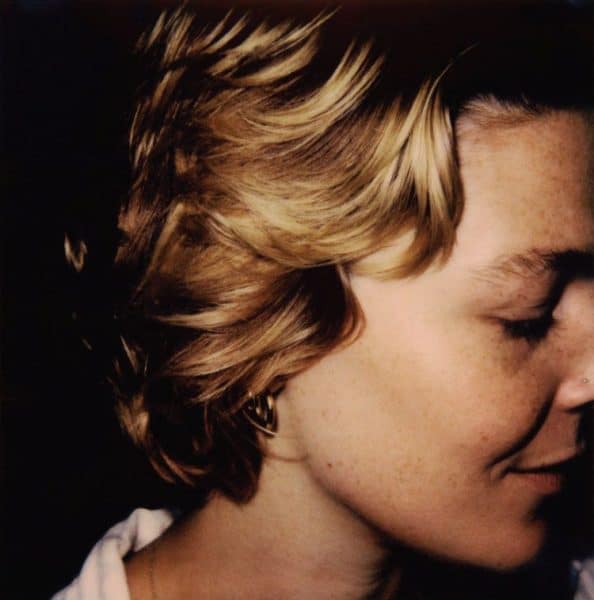‘We do not live in a post-colonial world’: UA professors talk decolonization in academia
October 20, 2021
While many believe that colonization is something that happened centuries ago, the effects of colonization still run deep — and it’s apparent on college campuses.
With almost no places left untouched, colonization has centered itself in academia, where it devalues people of color, ignores the history of colonialism and centers whiteness in everything that it does. Though it may be sparse, several departments and programs around The University of Alabama are working to decolonize their classrooms, mindsets and entire departments.
Holly Horan, an assistant professor of anthropology and the chair of the Department of Anthropology’s Decolonization Committee, said she learned about the effects of marginalization on health and well-being early while being raised in a household with one white and one Puerto Rican parent.
For her dissertation and her fieldwork in Puerto Rico, she studied the effect of perinatal stress on the timing of birth.
“It was my lived experience of understanding what it’s like to be in a family with people of color and how they’re treated differently that has shaped my perspectives in this work,” Horan said. “From conversations that I had with my own mother about the history of the island, it was very clear to me the impact of colonization transcends geopolitical borders, generations and lived experiences.”
Horan said she rarely heard the term “decolonization” as an undergraduate at the University of Iowa or in her master’s program at the University of Montana, but her time working in Puerto Rico highlighted colonization heavily.
During her research in Puerto Rico, Horan was deeply embedded in the country’s health care and perinatal care systems, which showcased to her the “explicit and insidious effects of colonization.” It was clear to her that “we do not live in a post-colonial world.”
Horan’s research showed that colonization directly affects poor health outcomes and manifests in the participants’ daily lives.
In the summer of 2020, during the pandemic and after the death of George Floyd, Horan and some of her anthropology colleagues at the University formed the Decolonization Committee to foster a department-level culture that emphasized the personal and collective responsibilities to fight oppression.
“Decolonization is, at minimum, a twofold process. The first is intention, and the second is action,” Horan said. “The intention of decolonization is to approach our work as anthropologists, being moral, being ethical and with a sense of justice, especially given the history of our discipline. The second piece of that is action. Decolonization is actively resisting oppressive systems in research, teaching and service. Decolonization is decentering standards and expectations that reinforce oppressive hierarchies.”
On Friday, Nov. 5, the Decolonization Committee will hold a panel made up of students and professors to talk about decolonization, particularly for people who are unfamiliar with the topic.
“Decolonization is also turning the lens inward and saying, ‘How do I, in my everyday interactions, attempt to decenter colonial ideologies and all that they represent?’” Horan said.
Students are encouraged and welcome to support the decolonization process, but Horan said it’s important for professors, rather than students of color, to spearhead the department’s decolonization work, because students of color shouldn’t have to “clean up a problem they didn’t create when they are in incredibly precarious positions in the academy.”
“Dismantling white supremacy, which is part of decolonization, should not have to be the work of people of color,” Horan said.
Horan said people in positions of power and leadership, like the faculty, should take the lead in pushing toward equitable change.
“We have the most power; we have the privilege. It’s on us,” she said. “Students should be able to come to decolonize with an open mind and with energy, but they should not be responsible for fixing the problems in a field they aren’t even formally in yet.”
Anthropology is one of the few departments on campus recognizing decolonization work, but professors in other departments are reexamining their colonial ties.
Cindy Tekobbe, an Indigenous assistant professor in the Department of English, said decolonial theory takes a critical look at all western institutions built upon unceded land, including universities.
“Our institutions are based on settler-colonial ideology; that includes white supremacy,” Tekobbe said.
They aim to take the focus away from the Eurocentrism that dominates Western academia. Tekobbe said there will need to be people who understand the model of Eurocentric knowledge and what it does to people.
“We don’t really understand that right now,” Tekobbe said. “We think our knowledge systems are neutral, but they are not. They are value-laden.”
The values of these systems have created barriers that Tekobbe herself has been forced to confront.
“My personal experience is that my value system is quite different from my colleagues’, and when we talk, we often miscommunicate because we’re not coming from the same place of knowing,” Tekobbe said. “For example, one of the things that’s really important is single-author scholarship. You’ve got to do the research yourself, and write it yourself, and produce it yourself, and put your name on it, but no one makes knowledge in a vacuum.”
Tekobbe said the humanities are a viable place to begin with decolonization work on campus.
“I think English could be a place where we could decolonize some of that knowledge, give students a richer experience and make our institution friendlier to people of color,” Tekobbe said.
Tekobbe, along with some of her colleagues, has attempted to create an Indigenous student organization. Indigenous students account for less than 0.5% of the student population, and it is difficult to locate them because of the way they are registered. This area is home to the Poarch Band of Creek Indians, the Muscogee and more. Many students’ ancestors are here.
One of Tekkobbe’s colleagues, Heather Kopelson, an associate professor of history, also teaches classes that are informed by decolonial theory.
Beyond the formation of an Indigenous student organization, Kopelson would like to see a Native studies or Indigenous studies minor added to the University’s course catalog.
“I’ve been part of a group of faculty who have been talking about [adding an Indigenous studies minor], but it’s really hard to get a new program like that approved, especially because the question is always, ‘Well, can you show student interest?’” Kopelson said. “But I think one of the issues with indigenous studies in particular is that a lot of people have never even thought about it.”
Kopelson said there have been small improvements in the Department of History in recent years. Other professors have incorporated Indigenous perspectives in their classrooms, and students have shown a renewed interest in Indigenous studies.
Kopelson said she and Mairin Odle, an assistant professor in American studies who teaches Native American history, have full enrollment in their classes.
Currently, Odle’s Native American studies course has 34 students, while Kopelson’s Native American history course has 38. Five years ago, the number of students in these classes barely reached double digits.
Kopelson acknowledged the barriers that marginalized groups face when entering academic fields, but she wants students to know that they can ask for help. While decolonization seeks to eliminate these barriers, she said it’s important that students feel comfortable approaching faculty members for assistance.
“In the history department, and in many others, the majority of faculty want students to ask for help and don’t see it as a weakness. And I think that’s a huge barrier in that the experiences of many marginalized groups have taught people that if they ask for help, that’s weakness,” Kopelson said.
When colonial problems extend through the course material, it can be difficult for students to find help. This was the case for student Katherine Johnston, a junior majoring in kinesiology who identifies as Native American.
“It’s hard to go into a class and hear somebody lecture to you about your own people’s history and for it to be completely inaccurate,” Johnston said. “As a Native student, I have had to take some history classes where the lessons taught on Native people are both very inaccurate and continue to feed into the ‘savage Indian’ stereotype. It’s not just the teachers that feed that, but it’s the actual material that is being taught. It’s like we don’t matter. This is why the decolonization of education is so very important.”
By recognizing the inherent effects of colonization and by decentering whiteness and colonial mindsets, students and faculty members alike can do their part to decolonize the Capstone.
“There’s no way we can go back and fix the past. That is out of the question, but there’s always something that can be done to make the future better,” Horan said.
This story was published in the Legacy Edition. View the complete issue here.
Questions? Email the Culture desk at [email protected].











